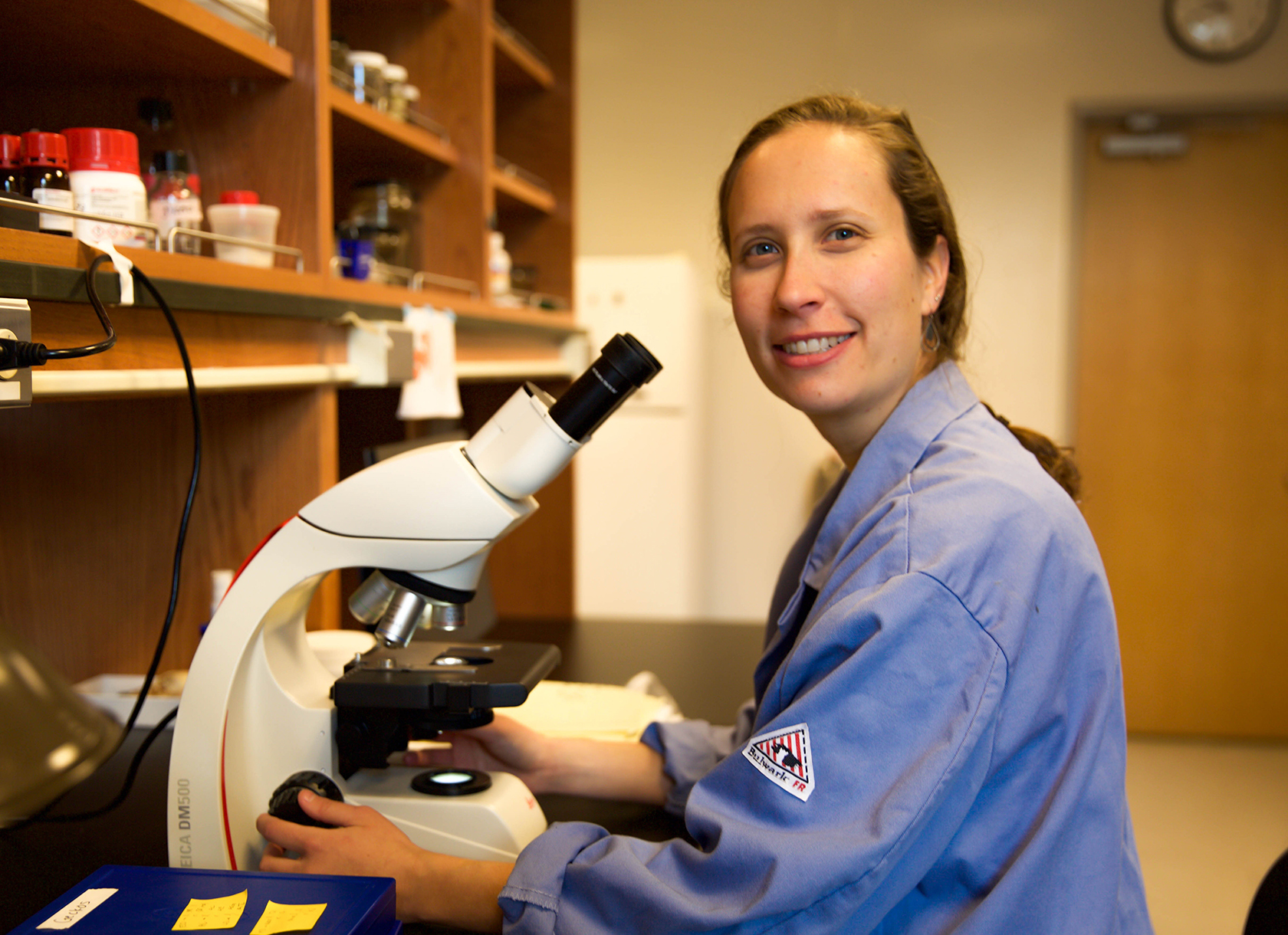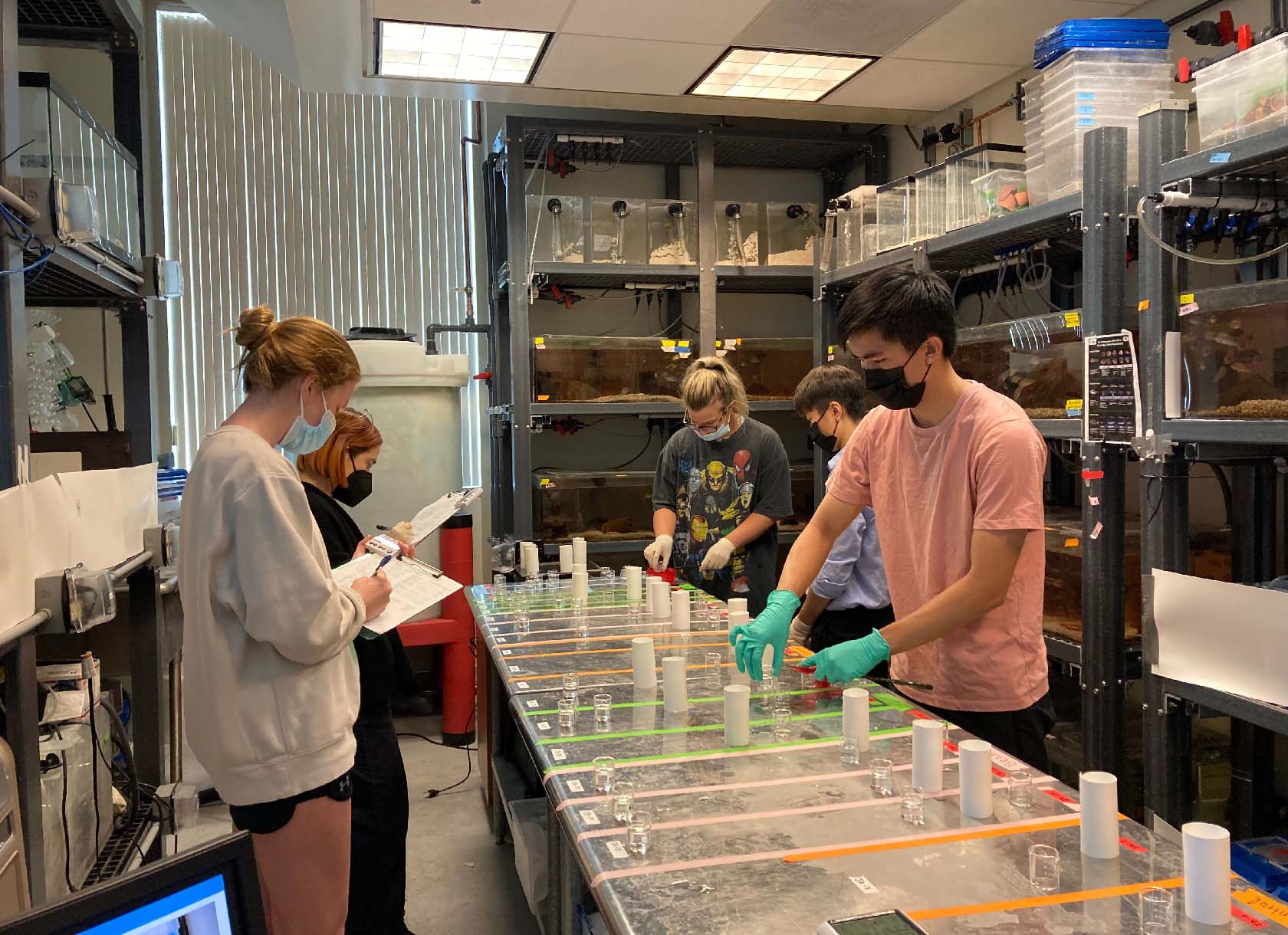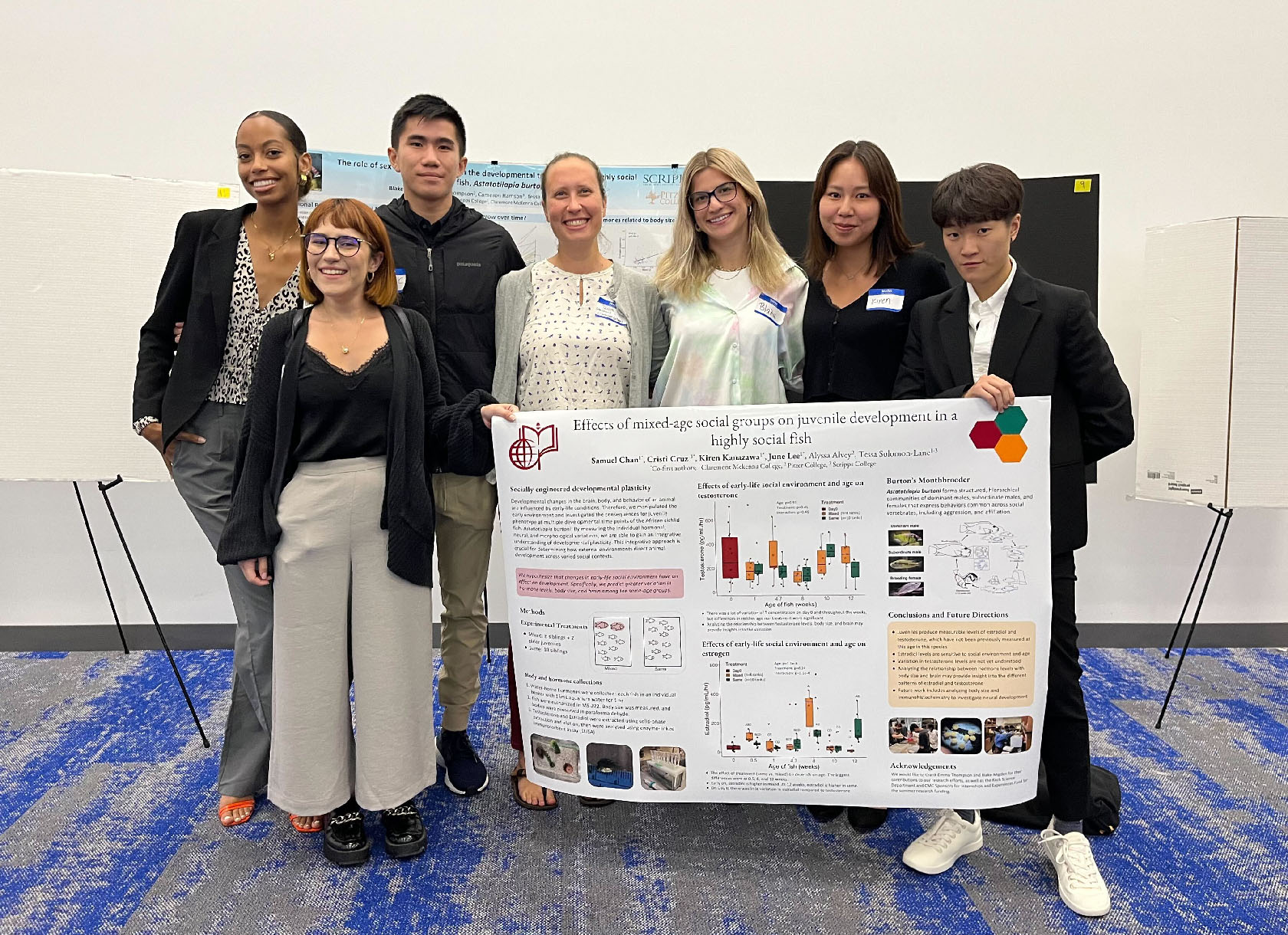
Professor of Neuroscience Tessa Solomon-Lane has been awarded a $929,414 Faculty Early Career Development (CAREER) grant by the National Science Foundation, an independent governmental agency that supports research and education in science and engineering. The prestigious CAREER Program supports early-career faculty in leading advances in their fields and providing strong academic mentorship through the integration of education and research.
Solomon-Lane’s CAREER grant, titled Early-Life Social Environments Drive Behavioral and Neural Mechanisms of Development, will fund a five-year research project beginning in May 2024. Through interdisciplinary training of young scientists in the lab and classroom, the project will promote scientific literacy and increase knowledge about behavioral neuroendocrinology, contributing to a healthier, more well-informed public.
“Scientific literacy and evidence-based decision-making skills are particularly powerful within the context of a liberal arts education, where our students gain experience in STEM and in the humanities,” Solomon-Lane says. “Topics in behavioral neuroendocrinology are relevant and impactful not just to the lived experiences of undergraduates, but also more broadly, such as laws impacting life-saving healthcare for pregnant people and trans people, as well as the environment. Understanding the full scope of these issues requires knowledge and expertise from non-STEM fields, as well.”
Through funded summer research positions and increased resources to dedicate to scientific discovery, this CAREER grant will support undergraduate researchers at Solomon-Lane’s lab by creating opportunities for students to engage in authentic research. Hands-on research is among the most crucial components of a science education, and its benefits extend far beyond the laboratory.
Solomon-Lane says, “Research builds skills that are both key to scientific discovery and highly transferable, such as creativity, collaboration, communication, persistence, and resilience. The research in this project will not just prepare students to contribute new knowledge in one field; by gaining understanding of and direct experience with the research process, students will also have a strong foundation for being able to contribute to knowledge generation in other fields, as well.”

Specifically, Solomon-Lane’s project aims to contribute to science’s understanding of how individuals are shaped by their early-life social experiences and environments. Developmental plasticity, the phenomenon by which an organism’s environment and experiences during its development affect its synapses and shape its behavior, is a vitally important piece of the neurobiological puzzle. While it’s well known that social stimuli impact development, not enough is understood about exactly which elements of these early-life experiences lead to long-term effects on individuals.
Social behavior has been a central theme of Solomon-Lane’s research, and her interest has its roots in her childhood. “Both of my moms worked with kids with learning and developmental disabilities. Engaging in and adhering to neurotypical social norms remains a source of exclusion and discrimination for neurodiverse people. Although I did not yet have that context for disability rights as a kid, I began to wonder about the origins of social behavior and variation. Why can some individuals navigate the social landscape better than others? The importance of social behavior and social interactions is not unique to humans, and this question continues to guide my research today.”
By uncovering causal relationships between elements of individuals’ early-life social experiences and long-term behavioral impacts, Solomon-Lane’s project will fill in gaps in what is known about developmental plasticity.
The project will use a species of highly social fish, Burton’s mouthbrooder, as a model. Among other factors, the project will measure the frequency with which fish interact with each other—including the manner in which they do so and whether they form smaller groups amongst themselves within the larger group—their behavior in terms of exploration and dominance, their hormone levels, and the development of key brain regions. By engineering a variety of social experiences for young fish during their development, and analyzing how the fish are affected, researchers will be able to gather valuable data with far-reaching implications about development in vertebrates, including humans.

True, humans are not fish, Solomon-Lane points out, but “humans share fundamental similarities with nonhuman animals. As we work with the fish to understand how development is shaped by early-life social experiences, I would not expect to see the exact same outcomes for humans, and it would be inappropriate to make such a leap. However, in understanding how biological systems and development can potentially be shaped by experience, we may find parallels with other species, even if the specific effects are not identical.”
Beyond the research’s contribution to knowledge creation, Solomon-Lane sees the project as an opportunity to encourage a multidimensional mindset in new scientists. “I’m excited that this grant will support our lab in being less reductionistic and more naturalistic. Appreciating and understanding variation is the very foundation of our work. Many graduates from our lab go on to health professions, and I hope they continue to see patients in integrative, multidimensional ways rather than reduced to a single dimension. Data and numbers do not speak for themselves and require interpretation, and this is even more essential when working with people. It’s why a central tenet of disability rights is ‘nothing about us without us.’”


